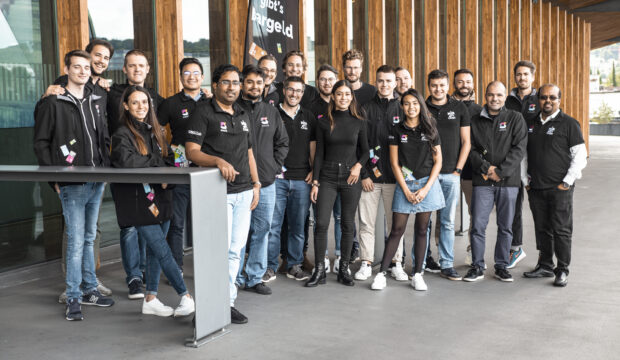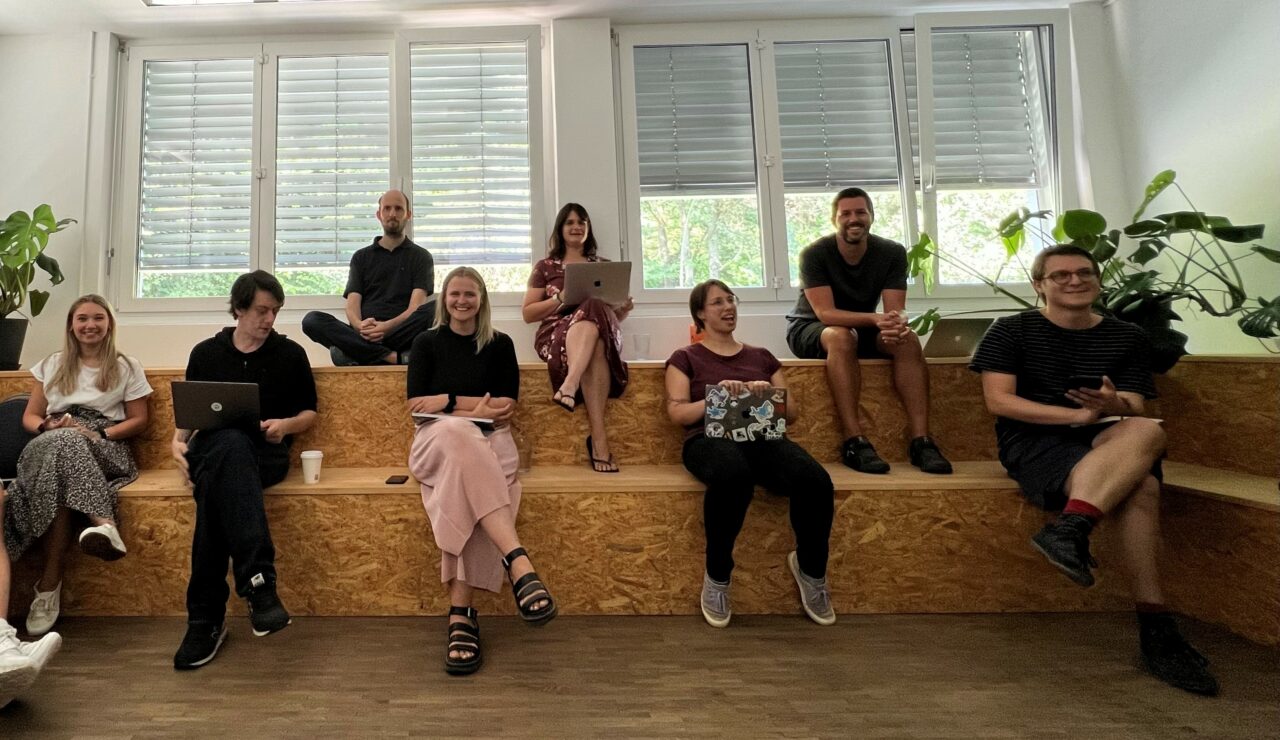
Raphael Reber, Co-CEO at Zeilenwerk, talks about the different approaches in the area of company organization, roles, and salaries, as well as experiences with LEXR in the software license agreement.
What challenges do you solve with Zeilenwerk?
Zeilenwerk was initially a classic digital agency and has increasingly developed into a product and venture studio. As such, we offer services in the area of innovation and digitization consulting, but we mainly focus on building digital products end-to-end for our clients and ourselves.
The so-called “human-centered design” has played a leading role in this for quite some time. All new technologies and trends have one thing in common: they go back to people and their needs. There are many buzzwords in the digital field – the ones that are currently developing as trends always solve human needs.
At Zeilenwerk, we have three product teams where we combine cross-functional roles and different perspectives from the user’s point of view (UX Researcher, Designer, Consultant, Developer, etc.). Clients can book us as Startup as a Service or Team as a Service to design digital strategies for their products with us and implement them until go-live (as well as beyond). We then deploy the right roles for them at the right time.
Zeilenwerk is experimenting with different approaches to business organization, roles and salaries. Which ones are you currently applying and how is the implementation going?
In general, we are self-organized as a company in every role. An exciting part of this is the “self-set salaries”. That means everyone defines their own salary and then pitches it internally before it is finalized.
With these not-so-common models, we strengthen and encourage entrepreneurial thinking and action from our team members. All line workers not only have a job, but are part of a larger vision. Everyone at our company has an influence on this vision and can help shape it. This is one of the biggest unique selling points of our team and Hirings. In digital, the biggest growth driver is the team and how quickly you find good people. Through our approach, we attract interesting people who are entrepreneurial.
These concepts are not the magic bullet for everything, but for us they solve some challenges. Before we put this approach into action, we “tinkered” with the salary model issue for over two years. In our diverse team, different attitudes and lifestyles collide. Our common denominator is that we all want to put responsibility and participation at the center on one side and vision and purpose on the other. This is what we have built our organization and current processes around.
How are the models, especially the self-set salary, being put into action?
We are (fortunately) not the only ones working with these models. There is a small community of companies from Germany, Sweden and Switzerland that are “experimenting” with these and other models and also exchange information about them.
In practice with the self-set salary we have an initial salary that is fixed and after a certain number of months the self-determined salary process starts. At the moment it works well with 21 team members and I’m sure it can be scaled up, but I imagine it would be difficult with 200 employees.
You guys have been working with LEXR regarding your software licensing agreement. How would you describe your experience with us?
For us, the issue of intellectual property is important because we think in terms of products, and as part of the product strategy we have to think carefully about how long we will keep the intellectual property, whether the product will become a spin off, and much more. For us it was important to find a legal partner who also has a “venture mindset”. On the one hand to understand the nature of our work and the products, but also to be able to advise what makes strategic sense and what does not.
It is important to us that our business model is understood, that the lawyers can think outside the box and advise on risks and opportunities of different options in an understandable and transparent way.
What advice do you have for companies that want to stay on the digital ball?
Here, we are implementing more and more strategy projects and dealing with this very question. In general, it’s important to have an open and agile mindset, and when you’re working on digital or innovation projects, to break them down into small steps and then take them. It’s important to try something new every now and then, and on the other hand, not to have the feeling that you have to travel around the entire corporate strategy because of every new trend. Nobody knows what the future will bring, but being agile and able to react makes companies viable in a reality that is moving more and more.
Related
100+ companies, both big and small, are starting and growing their business with LEXR.
Let’s Go!
Book a free, non-binding discovery call to discuss how we can help you achieve your business goals.
Or feel free to reach us directly via email at [email protected].

